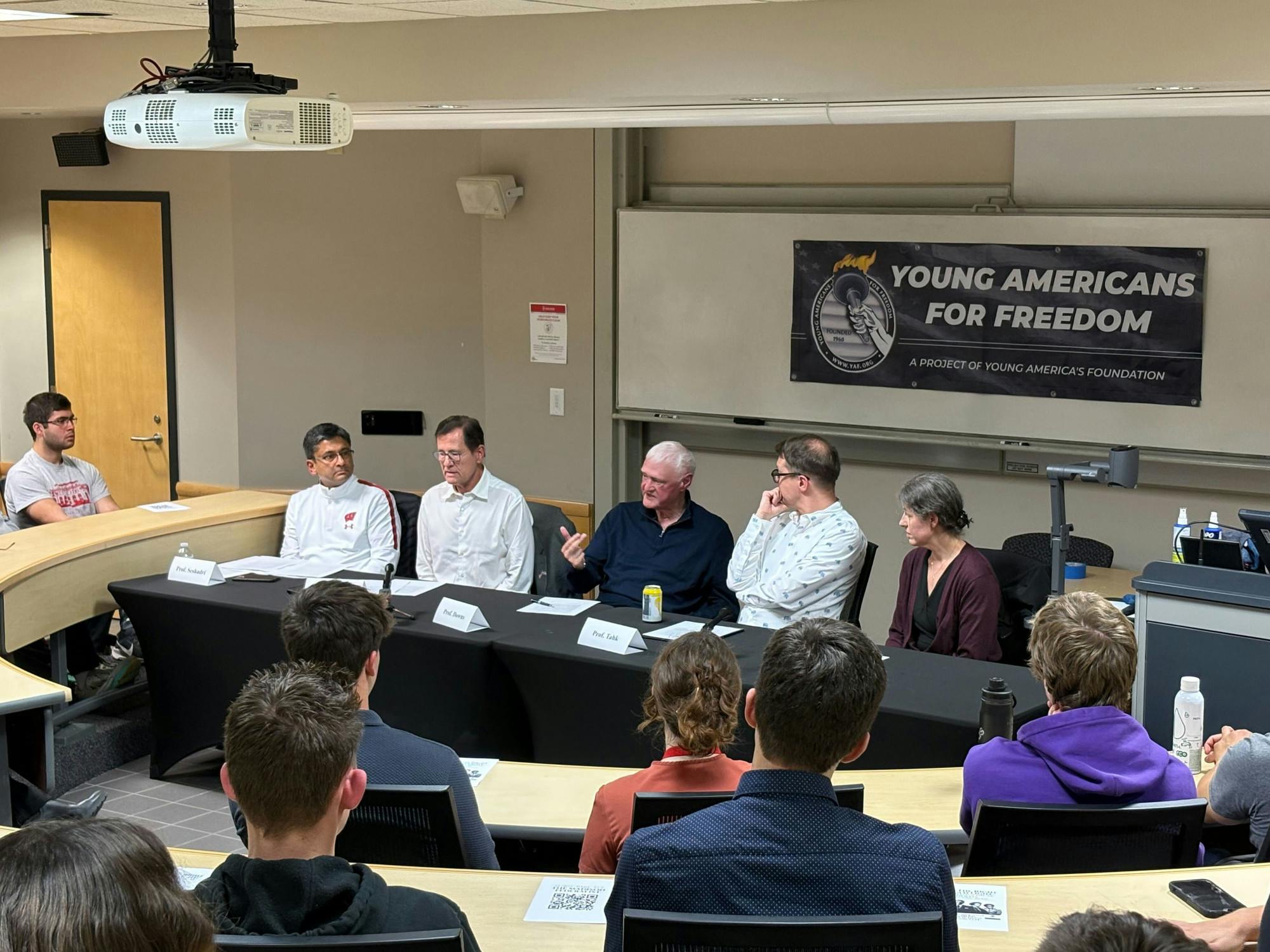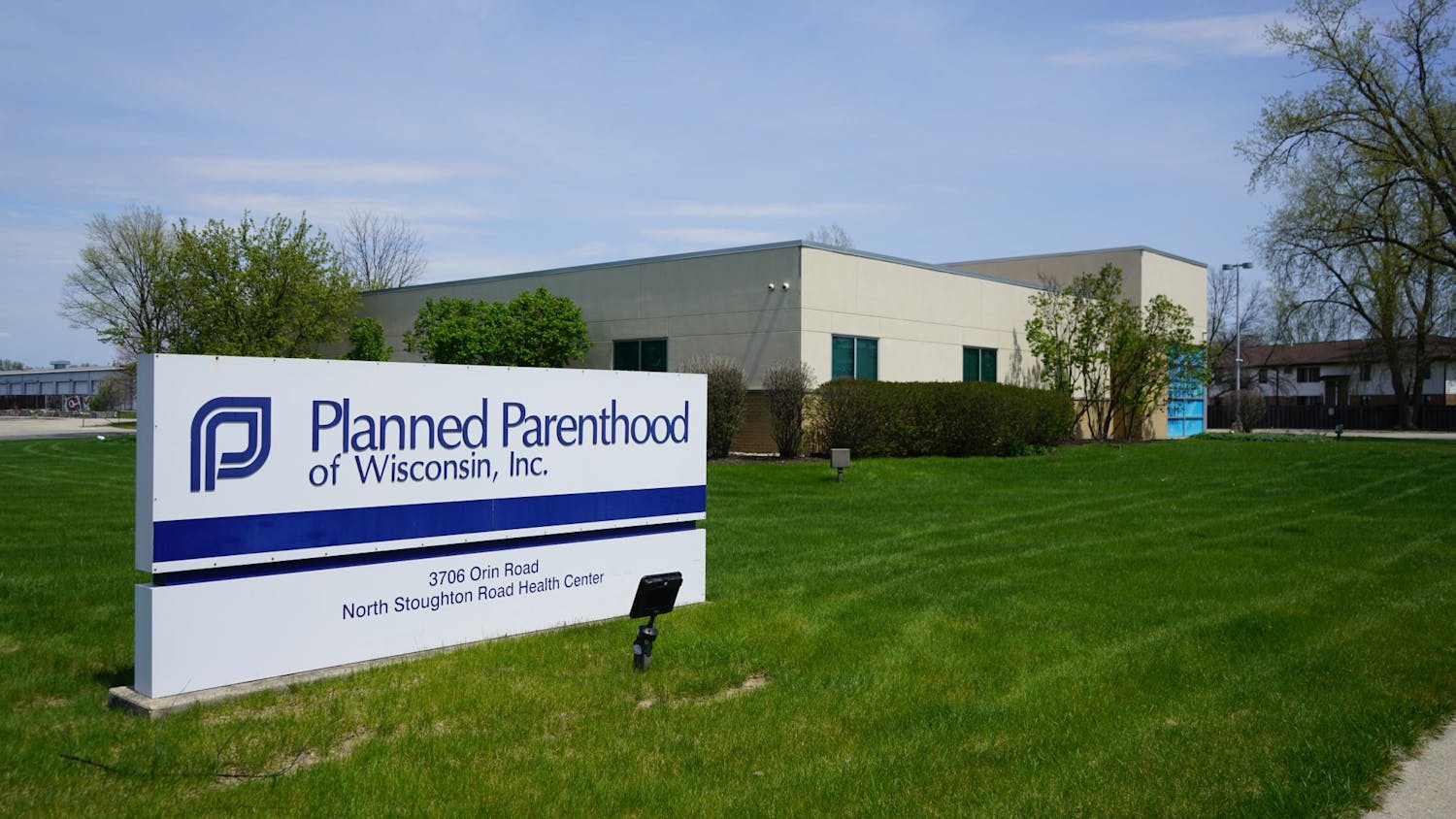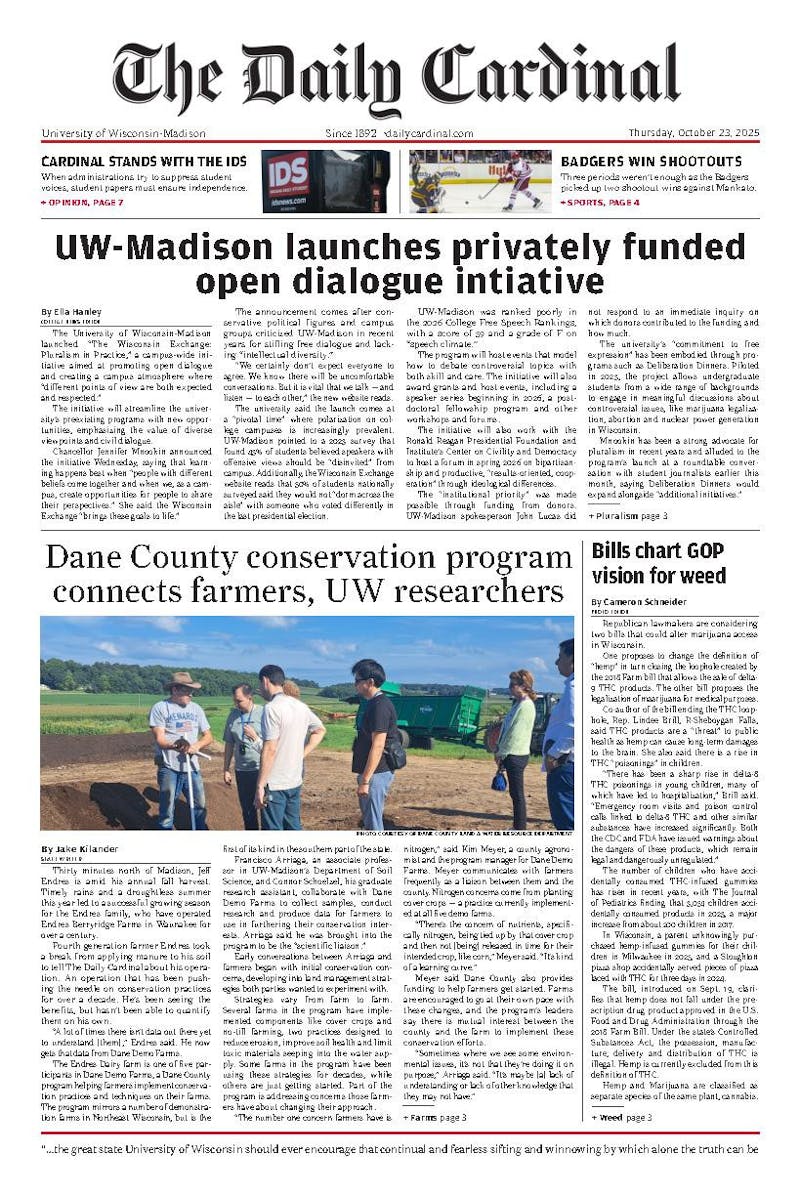A conservative student group at the University of Wisconsin-Madison hosted a panel discussion on campus Oct. 15 highlighting growing tensions on college campuses over free speech, representation and political balance in the classroom.
Wisconsin Young Americans for Freedom’s panel, featuring current and former UW-Madison professors and state Rep. Dave Murphy, R-Greenville, examined how universities can preserve open debate while addressing concerns about a shrinking range of political views, especially in the aftermath of conservative commentator Charlie Kirk’s assasination at a college in Utah.
The panel pointed to the Foundation for Individual Rights and Expression (FIRE) free speech survey which ranks UW-Madison a 59 out of 100 on an overall score of campus speech and an F grade for free speech climate. In a 2025 survey, FIRE reported 65% of more than 400 students surveyed said they were uncomfortable publicly disagreeing with a professor about a controversial political topic.
“The goal of tonight is not to come away with a single answer, but rather to discuss practical steps that we, as students, administrators, faculty and legislators, can take away to strengthen ideological diversity at UW-Madison,” WYAF chair and UW-Madison undergraduate junior Courtney Graves said in the panel’s opening remarks.
UW-Madison political science professor Alex Tahk began the panel by defining campus ideological diversity as “a diverse range of ideological perspectives on campus, whether it’s amongst the students or faculty.”
Tahk said ideological diversity “at a minimum,” includes representation from both the political right and left, “but not ending there.” He called ideological diversity essential to the university’s “truth-seeking mission” and to prepare for civic life.
Cecilia Klingele, a UW-Madison law professor and director of the Center for the Study of Liberal Democracy, said UW-Madison talks a lot about “sifting and winnowing,” — the concept of academic freedom and how the university should never censor expression — but said real ideological diversity requires “not just stereotypes of positions or ideas or partisanship, but real people with a real diversity of life experiences.”
Ananth Seshadri, director of the Center for Research on the Wisconsin Economy, said lack of ideological representation has worsened over time. “The campus skew is way to the left of society at large,” he said.
“This isn’t about endorsing every view, it’s about humanizing the other view,” Seshadri said. “It’s well past time to move away from traditional demographic diversity obsessions to more intellectual diversity and viewpoints.”
While the panel’s comments mostly focused on exposing students to more conservative perspectives, Republican lawmakers have also proposed considering political ideology when hiring faculty. Murphy has said the university has a history of “indoctrinating students” with its liberal bias in staff that hurts education quality.
Before federal pressure in part prompted changes to campus diversity services, UW-Madison made efforts to emphasize a welcoming community of different perspectives within faculty with programs such as Engagement Inclusion and Diversity (EID), and the BIPOC Employee Network.
Donald Downs, professor emeritus of political science and panel speaker, called UW-Madison an agent of social progress but by exposing us to diversity of truth and ideas in the world, giving us more intellectual sophistication and tolerance.
Downs said when exposed to every viewpoint, students will be more knowledgeable and know how to critically think.
“We influence the world by helping to train people’s minds,” Downs said. “[Education] is not just knowledge. It’s an adventure. It’s fun learning new things and arguing.”
UW-Madison officials have touted their desire to support civic dialogue on campus, most recently by announcing the formation of a privately funded "pluralism" center, and expansion of deliberation opportunities on campus.
Decline in openly conservative staff and intellectual diversity on campus
Graves posed a question regarding a decline in openly conservative faculty, noting the resignation of two political science professors, Ryan Owens and Richard Avramenko, in 2024. Owens and Avramenko both said they resigned due to a lack of ideological diversity and called the UW-Madison campus climate hostile to their views.
“For a while, there were three of us, and then two of them left, and then there was just me.” Tahk said.
Tahk said ideological diversity became a more prominent issue as diversity, equity and inclusion efforts expanded, and faculty began being asked to disclose personal identifiers such as their preferred pronouns.
In response to this, Downs said, “I’m glad I retired.” The whole room laughed.
Pros and cons of implementing a civics school
The panel also discussed the importance of civic education and engagement.
“A lot of students, they have sort of a Tik Tok level superficial understanding of a lot of concepts and haven't had a chance to even explore rich literature and thinkers from the past and present,” Klingele told The Daily Cardinal. “[Civics schools] would give access to these perspectives.”
A civics school is “non-partisan and serves not to dictate opinions, but rather to empower people to make their voices heard,” Wisconsin Department of Public Instruction said in a press release.
The panelists said a civics requirement at UW-Madison specifically, in addition to the system wide requirement, could help diversify political leanings on campus and make students and faculty more comfortable sharing opinions.
Graves asked Klingele and Seshadri if they felt civics schools were effective and if they could be implemented at UW-Madison.
Klingele and Seshadri agreed that starting a civics school at UW-Madison was not sustainable, saying they could become a “fad of the moment.”
Seshadri said a civics school is not currently feasible as they would require a reliable source of funding. Currently, federal funding prioritizes STEM education over civics. “But if it can be done with bipartisan support, done well, done right, it could be successful,” Seshadri told the Cardinal.
Addressing self-censorship
Last year UW-Madison released policy updates regarding censorship. Some restrictions on campus included limiting the size of signs when used indoors, sound amplifiers and forms of expression.
“Expressive activity is prohibited within 25 feet of entrances to university-owned or university-controlled buildings and facilities,” the university said in a August 2024 statement. They also stated “these limitations…facilitate the safe and efficient operations of the university.”
These policies and guidelines are still in place and are “part of a broader effort to educate the campus community on all aspects of free expression, provide transparency and expand civil discourse programming,” the university said.
With this goal still intact, the panelists discussed ways to reduce self-censorship among students and faculty in the classroom.
Klingele told the Cardinal professors avoid controversial topics because they are scared of “getting them wrong” when speaking to students.
Tahk believes “there’s no sort of quick fix” when it comes to self-censorship. “Teaching’s a hard job and facilitating constructive discussion is a hard job,” he told the Cardinal.
Professors also said they don't know how to fix stigma around ideological diversity on campuses.
“As an instructor, I have to own that sometimes I screw up and probably make some students in my class feel alienated in some way that I don't intend and don't even know unless they come and tell me about it,” Klingele told the Cardinal.






